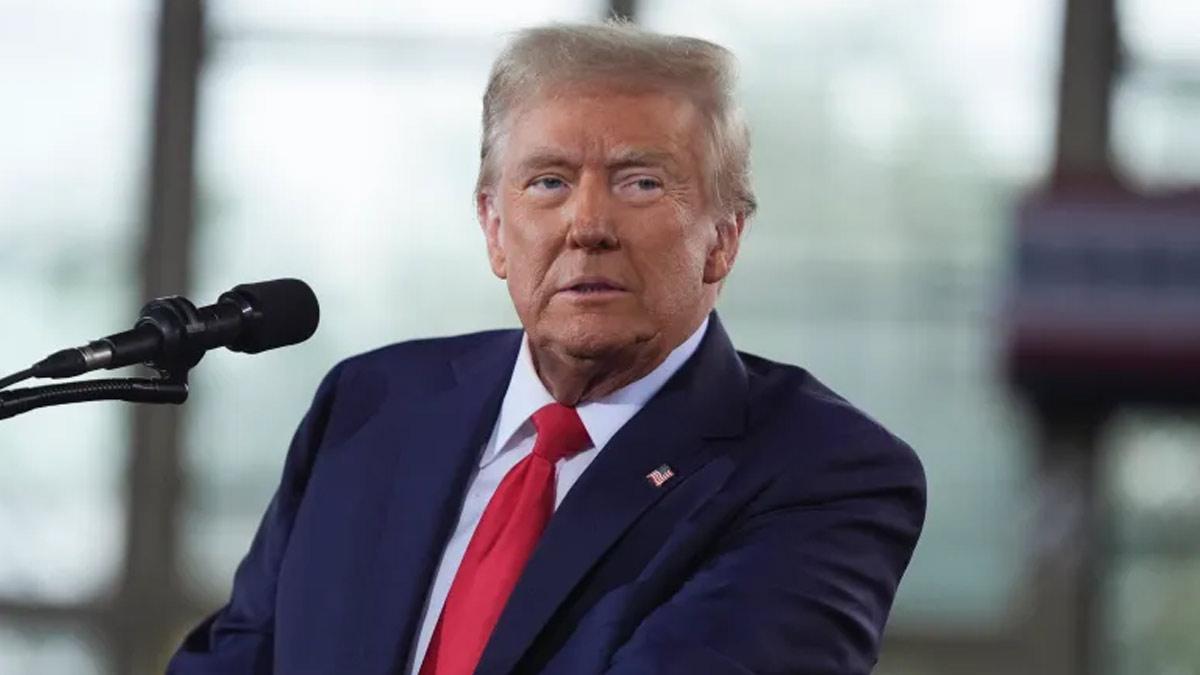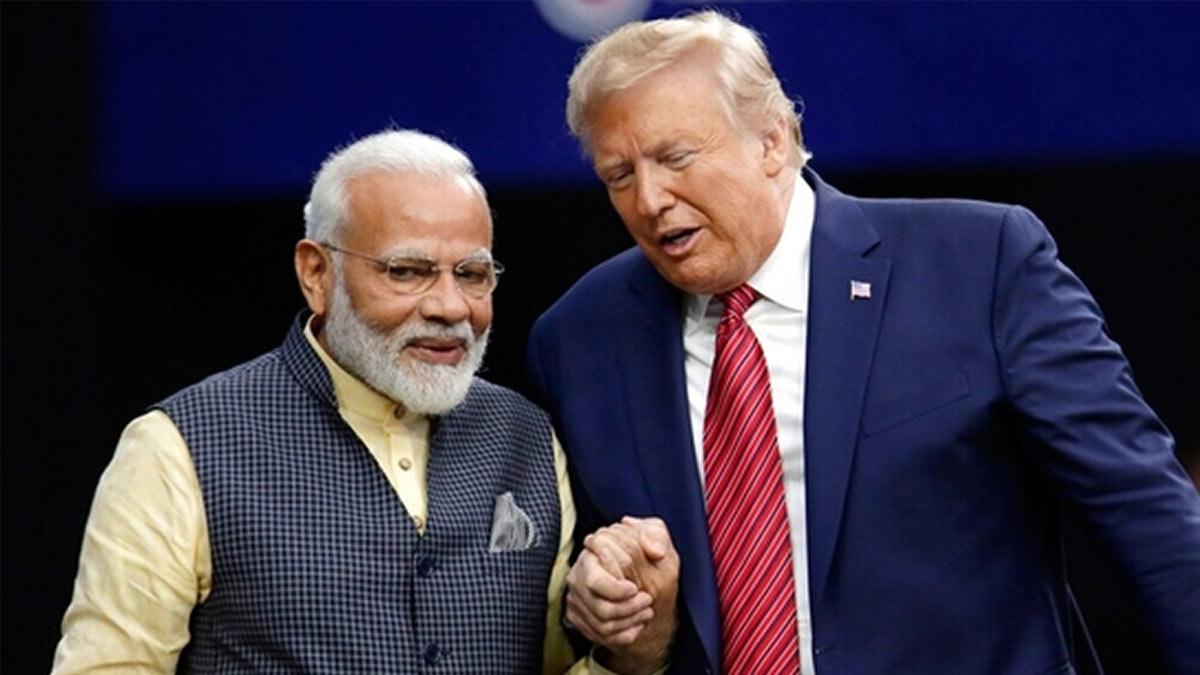US President Donald Trump said he would like to negotiate a nuclear deal with Iran and confirmed that he wrote a letter to the nation's ruling officials this week, calling for talks with the Islamic Republic, which the West believes is close to developing nuclear weapons.
In an interview aired on Fox Business News on Friday, Trump was questioned if he had written the letter to Ayatollah Ali Khamenei, Iran's Supreme Leader. He answered in the affirmative, stating, "Yes."
The government of Khamenei has been calling for Israel's destruction for a long time.
Trump also made his message clearer, stating that he had sent a letter to Iran, where he said, "I hope you're going to negotiate because if we have to go in militarily, it's going to be a terrible thing. You can't let them have a nuclear weapon." He went on to say, "There are two ways Iran can be handled: militarily, or you make a deal. I would prefer to make a deal, because I'm not looking to hurt Iran. They're great people."
He afterward confirmed that the letter was sent yesterday, because the interview had been recorded on Thursday.
The White House later confirmed Trump's assertion, which stated that he had written to Iran's government requesting a nuclear deal. The entire interview is to be televised on Sunday.
Trump also spoke of his desire for a negotiated agreement, in spite of opposition, observing, "I would rather negotiate a deal. I'm not sure that everybody agrees with me, but we can make a deal that would be just as good as if you won militarily." He added that time was running out, stating, "Something's going to happen one way or the other."
In remarks to the press in the Oval Office, Trump threatened "some interesting days" with Iran, saying, "We are in the last moments. We cannot allow them to have a nuclear weapon. Something is going to happen very, very soon. I would rather have a peace agreement than the other choice, but the other choice will end the problem.
Iran’s state-run news agency, IRNA, reported on Trump’s comments, but there was no immediate response from Khamenei’s office. Iran’s embassy to the United Nations stated on Friday that they had not received such a letter, with a spokesman confirming, “We have not received such a letter so far.” Tehran's foreign minister also remarked that the country would not enter negotiations while the U.S. maintains its "maximum pressure" approach.
Ever since Trump's comeback to the office, his administration has been adamant that Iran should be kept from acquiring nuclear weapons. Although Iran asserts that its nuclear program is peaceful in nature, U.S. intelligence and the United Nations' nuclear inspector have indicated that Iran had a formal military nuclear program until 2003 and continued to expand nuclear capabilities beyond civilian requirements.
In December, the U.K., France, and Germany accused Iran of building up its highly enriched uranium stockpile to "unprecedented levels" without legitimate civilian reason. The U.S. Director of National Intelligence also released a report in early December stating that "Iran now has enough fissile material to make more than a dozen nuclear weapons."
Israel argues that Iran never relinquished its nuclear weapons program, pointing to the reinforcement of most of its nuclear sites under mountains. Iran has in the last year fired several missile attacks against Israel, which has responded with retaliatory attacks on Iranian military installations. The attacks came during continued hostilities, including Iranian terror proxies' actions against Israel.
Trump's initial term was also marked by increased Iran tensions, particularly following his 2018 exit from the Iran nuclear agreement, which resulted in crippling sanctions and the assassination of Iran's most senior military general. Iran was capped at enriching uranium to only 3.67% purity and holding 300 kilograms of stock under the 2015 agreement.
Iran's quick production of close-to-weapons-grade uranium has put more pressure on Trump, who has repeatedly signaled his willingness to negotiate while also ratcheting up sanctions on Iran's oil exports under his "maximum pressure" policy.
During a speech in August, Khamenei indicated that it would not cause "harm" to negotiate with the U.S., but he softened his position later, indicating that negotiating with America was not intelligent nor dignified, particularly after Trump made an offer of nuclear talks.
As Trump threatened to use military action if diplomacy is not successful, the U.S. Air Force conducted a joint exercise with the Israeli Air Force on Tuesday that seemed to be sending a message to Iran. The exercise was conducted with Israeli F-15I and F-35I fighter jets accompanying a U.S. B-52 bomber, possibly gearing Israel up for a future joint military attack with the U.S. on Iran.
The Israeli Air Force has already conducted two standalone attacks on Iranian targets in retaliation for missile strikes against Israel. The attacks were said to have neutralized Iran's main air defense systems. Israel, however, might need the U.S.'s B-52 bombers to be able to hit Iran's well-defended underground nuclear facilities.
Read also| Trump Halts Tariff Increases on Select Mexican Imports


















